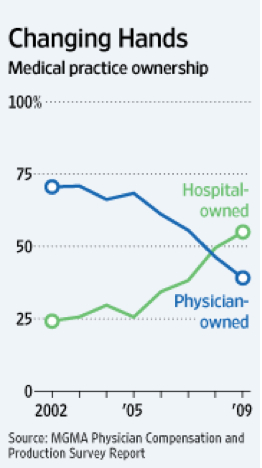August 4th, 2011 by GruntDoc in Health Policy, Opinion
No Comments »

In one of those things I don’t really get*, Texas requires a separate license from an unrestricted medical license to prescribe narcotics. As the price of this extra license has always seemed to be more ‘cover the cost’, nobody has seriously objected. It’s $25, in case you’re interested.
Since it’s a State license, it’s required if your job could even perceivably need to prescribe narcs in a hospital. (So, Radiologists and Pathologists are usually exempted). It’s never been an issue, as long as you don’t screw up.
Until now.
From the Austin American Statesman: Read more »
*This blog post was originally published at GruntDoc*
July 13th, 2011 by Paul Auerbach, M.D. in Health Tips
No Comments »

 Dengue fever is a viral (flavivrus) disease transmitted by Aedes albopictus and female A. aegypti mosquitoes. It is estimated that 50 to 100 million people in more than 100 countries are infected each year with dengue viruses.
Dengue fever is a viral (flavivrus) disease transmitted by Aedes albopictus and female A. aegypti mosquitoes. It is estimated that 50 to 100 million people in more than 100 countries are infected each year with dengue viruses.
There are four different types of dengue virus, and there is no cross-immunity, so a person may be stricken with dengue fever four times in his life. The most active feeding times for dengue vector mosquitoes is for a few hours after daybreak and in the afternoon for a few hours just after dark (dusk).
As opposed to the night-feeding mosquitoes that transmit malaria, these species tend to be “urban,” may also feed during daylight hours (also indoors, in the shade, and during overcast weather), and are known to bite below the waist. Dengue fever is seen chiefly in the Caribbean and South America, as well as other tropical and semitropical areas, such as Southeast Asia, Africa, and Mexico. In the United States, cases have been noted in Texas, Hawaii and Florida. The larvae flourish in artificial water containers (e.g., vases, tires), often in a domestic environment.
The incubation period following a mosquito bite is two to eight days. The disease is self-limited (five to seven days) and characterized in older children and adults by a sudden onset of symptoms, including: Read more »
This post, Dengue Fever: Mosquito Born Illness Now Found In Texas, Florida, And Hawaii, was originally published on
Healthine.com by Paul Auerbach, M.D..
April 4th, 2011 by GruntDoc in Humor
No Comments »


*This blog post was originally published at GruntDoc*
February 11th, 2011 by DrWes in Better Health Network, Opinion
No Comments »

From the Dallas Morning News, a creative moniker if there ever was one, but it should probably be reserved for primary care specialists instead:
DALLAS — Heart attacks are the No. 1 cause of death and a major cause of disability in America. For nearly half of the casualties, the first symptom is the last. That’s how cardiovascular disease has earned the nickname “silent killer” — you never know when it will strike.
Doctors are trying to change that by treating heart disease as a progressive problem. They are becoming “heart whisperers,” seeking new tests to read the small stresses that can, unchecked, grow into big ones.
“By the time someone rolls in with a heart attack, his family will look at me bewildered, and the patient may say, ‘Doc, what happened?'” says Dr. Bruce Gordon of Heart Hospital Baylor Plano. “But it’s not what happened. It’s what’s been happening. The process has been going on for decades.”
It’s a process that can be accelerated by high cholesterol, high blood pressure, obesity, diabetes, tobacco use and secondhand smoke.
-WesMusings of a cardiologist and cardiac electrophysiologist.
*This blog post was originally published at Dr. Wes*
November 8th, 2010 by Bryan Vartabedian, M.D. in Better Health Network, Health Policy, News, Opinion
2 Comments »

 I didn’t need the Wall Street Journal to tell that the days of “private practice” are numbered. According to recent numbers, fewer and fewer medical practices are under the ownership of physicians. Even in my corner of the economically secure State of Texas, small practices are folding faster than beach chairs at high tide.
I didn’t need the Wall Street Journal to tell that the days of “private practice” are numbered. According to recent numbers, fewer and fewer medical practices are under the ownership of physicians. Even in my corner of the economically secure State of Texas, small practices are folding faster than beach chairs at high tide.
I was driven out of private practice in 2004 by rising malpractice premiums and plummeting reimbursement. In Texas at the time the trial attorneys ran the place and medmal insurance carriers simply couldn’t keep up with the greed.
Medical practices are just too expensive to run and the services that physicians provide are dangerously undervalued. You do the math. Sure it’s a complicated issue. But the end result is institutionally-employed doctors with institutional pay and the risk of institutional service. Read more »
*This blog post was originally published at 33 Charts*




 Dengue fever is a viral (flavivrus) disease transmitted by Aedes albopictus and female A. aegypti mosquitoes. It is estimated that 50 to 100 million people in more than 100 countries are infected each year with dengue viruses.
Dengue fever is a viral (flavivrus) disease transmitted by Aedes albopictus and female A. aegypti mosquitoes. It is estimated that 50 to 100 million people in more than 100 countries are infected each year with dengue viruses.











